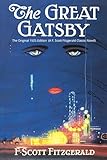For my Year in Reading, I’m focusing on two books and the questions they raised.
1. Truman Capote’s In Cold Blood is the last book he wrote, the book that he said almost killed him “and, in a way, did kill me.” He never did finish a book after In Cold Blood, which took him six years to complete. Answered Prayers is the book he was writing and not writing, the unfinished novel. Capote, not a writer concerned with humility, said the novel was “going to do to America what Proust did to France.” Answered Prayers is said to lack compassion and centers his rich friends (referred to as “New York society” in Vanity Fair in 2012, which I find amusing and revealing, as in it reveals Vanity Fair’s elitism)
Truman Capote’s In Cold Blood is the last book he wrote, the book that he said almost killed him “and, in a way, did kill me.” He never did finish a book after In Cold Blood, which took him six years to complete. Answered Prayers is the book he was writing and not writing, the unfinished novel. Capote, not a writer concerned with humility, said the novel was “going to do to America what Proust did to France.” Answered Prayers is said to lack compassion and centers his rich friends (referred to as “New York society” in Vanity Fair in 2012, which I find amusing and revealing, as in it reveals Vanity Fair’s elitism) and when they read the excerpts in Esquire—well, they quit being his friend. His outward response was: “What did they expect? I’m a writer, and I use everything. Did all those people think I was there just to entertain them?” But he was bothered, if not shaken, if not heartbroken by their rejection.
What is the experience of reading a book that is funny and mean and, in that way, cruel?
Pleasurable. The punches he throws at the publishing industry and at writers still land today, 3 5 years later, likely because the industry and the psychology of writers has not changed all that much.
Is it spiritually vacuous?
 That too. Consider if Daisy was the narrator of The Great Gatsby instead of Nick.
That too. Consider if Daisy was the narrator of The Great Gatsby instead of Nick.
How does it feel to read an incomplete work by a writer whose last book traumatized him?
I’m still discovering the answer to that question.
2.
During Fourth of July weekend, The New Yorker published Ronan Farrow and Jia Talentino’s article “Britney Spears’s Conservatorship Nightmare.” While I knew a bit about Britney’s nightmare, the article offered more details, like this one about her dynamic with her father: “‘He would get all in her face—spittle was flying—telling her she was a whore and a terrible mother.’” That detail still sticks with me.
 After I finished reading the article, I downloaded Farrow’s Catch and Kill from the Libby app. Reading about harm and abuse, reading about injustice and inequality, as fireworks caused my foster dog to curl up with fear in my bedroom closet, seemed an appropriate way to commemorate Independence Day in 2021.
After I finished reading the article, I downloaded Farrow’s Catch and Kill from the Libby app. Reading about harm and abuse, reading about injustice and inequality, as fireworks caused my foster dog to curl up with fear in my bedroom closet, seemed an appropriate way to commemorate Independence Day in 2021.
I was pulled in by Farrow’s succinct descriptions and the fast-moving plot, and his investigation of power, misogyny, and greed in capitalist America. Halfway through the book, I became a bit bored by the pacing. It didn’t vary. Then I came across this line:
“‘We do this straight down the middle,’ he said. ‘Just the facts.’”
In the scene, David Remnick of The New Yorker, is the editor who advises this play.
What if pacing did not vary in Catch and Kill because Farrow had to play it right down the middle, knowing lawyers would scrutinize every word? What if Farrow’s writing style had more to do with the realities of publishing a narrative in which powerful people felt they had something (or everything) to lose? What if the pace was pointing a finger at those invisible forces? And, how often are narratives shaped by power that is unjust and unequal? And how does this impact art and culture?
More from A Year in Reading 2021 (opens in a new tab)
Don’t miss: A Year in Reading 2020, 2019, 2018, 2017, 2016, 2015, 2014, 2013, 2012, 2011, 2010, 2009, 2008, 2007, 2006, 2005









